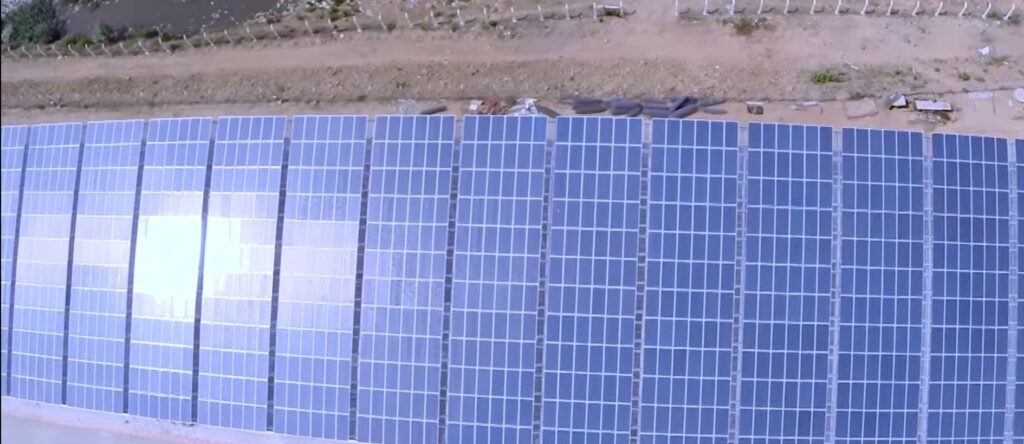President Joe Biden during a debate with former President Donald Trump Claimed“The only existential threat to humanity is climate change.” What if I told you that the real existential threat to billions of people on Earth is not climate change but climate policy?
The allure of a green utopia masks the harsh realities of providing affordable, reliable electricity. If proposed policies go into effect, Americans may soon be waking up to a dystopian future. Net Zero and Build Back Better Efforts are being made to both increase the irrational growth of unreliable renewable energy and crack down on reliable fossil fuels.
Nowhere is this more evident than in remote parts of India, where solar panels that were once believed to provide clean, green energy are ultimately Build a cowshed.
The transformation of Dharnai in Bihar into a “solar village” was marked by great enthusiasm and high expectations. Villagers were told that the solar microgrid would provide reliable power for agriculture, social activities and daily life. This promise engendered a naive trust in a technology that has failed so many times around the world.
This news Greenpeace's efforts The story went viral after international news media picked it up as a Third World “renewable” energy success story. CNN International's “Connect the World” Said The Darnai microgrid Continuous power supplyTo an uninformed viewer sitting in, say, rural Kentucky, solar energy would have seemed like a major breakthrough as a reliable source of energy.
But the Darnai system is finally a grand Solar power failure.
“As soon as the solar connection was in place, we were also warned not to use high-powered electrical appliances like TVs, refrigerators and motors.” Said Villager“Those conditions are not met with thermal power generation. So what is the use of thermal power generation? The price of solar energy is also higher than that of thermal power generation.”
a The village shopkeeper said“But after three years, the batteries died and they were never fixed…. No one uses solar power here anymore.” Hopefully, the solar panels will help the cow shelter last for much longer.
In the end, the village Connected Connected to the main grid, it provided completely reliable coal-fired electricity at one-third the price of solar power.
Dharnai is not an isolated case. Several other large-scale solar projects in rural India have met a similar fate. Mainesh Kumar, writing in Mongabay magazine, said: Said“When (grid) electricity reaches unelectrified villages, the infrastructure and funds used to set up such off-grid plants may go to waste.”
While environmental groups and the liberal mainstream media are embarrassed by much-touted solar projects being converted into cowsheds, traditional energy sources like coal continue to power India's more than 1.3 billion people and the industries its economy depends on.
India has seen record electricity demand this year as more people can afford and use air conditioners and other appliances. Coal often comes to the rescue when there are shortages. India has allowed its coal-fired power plants to build up coal stockpiles and import additional fuel without restrictions.
India plans to add more than 15 gigawatts in the year to March 2025 (The most in nine years) with the aim of adding a total of 90 gigawatts of coal-fired power capacity by 2032.
In a growing economy like India, energy challenges are an unavoidable reality and only resources like coal, oil and natural gas can meet the demand. While fossil fuels can be relied upon to provide the energy required for modern life, “green” sources cannot.
India's position is to prioritise economic growth over any climate-related plans to reduce fossil fuel use, as reaffirmed by the country's refusal to set a net-zero target earlier, postponing it until 2070.
Dharnai's story serves as a cautionary tale for the implementation of renewable energy projects in rural India, where pragmatism has officially been chosen over fantasy.
Vijay Jayaraj is CO2 AllianceA native of Arlington, Virginia, he received his Master's in Environmental Science from the University of East Anglia in the UK.
The views and opinions expressed in this commentary are those of the author and do not necessarily reflect the official position of the Daily Caller News Foundation.
As an independent, nonpartisan news service, all content produced by the Daily Caller News Foundation is available free of charge to any legitimate news publisher with a large readership. All republished articles must include our logo, reporter byline, and affiliation with the DCNF. If you have any questions about our guidelines or partnering with us, please contact us at licensing@dailycallernewsfoundation.org.







